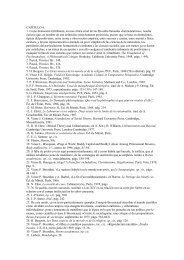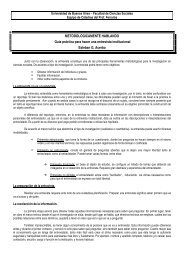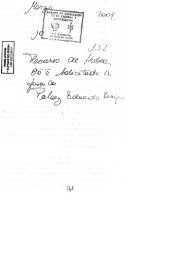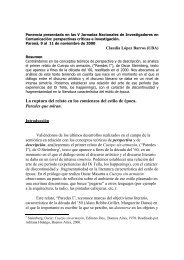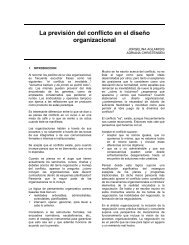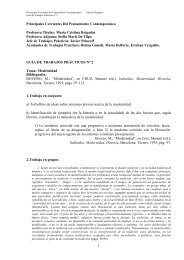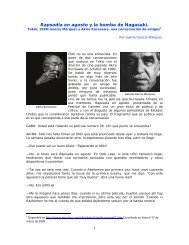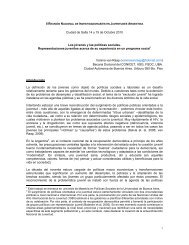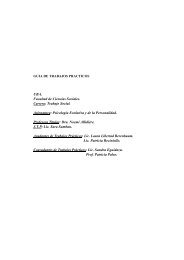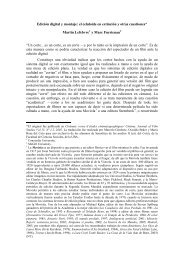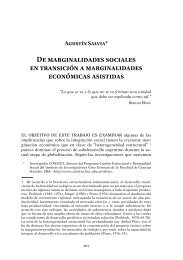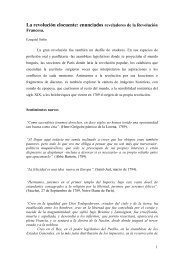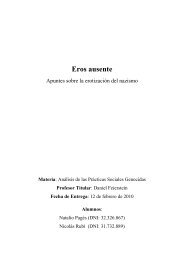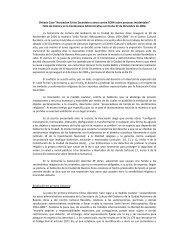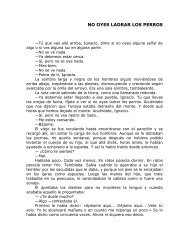Charisma Reconsidered
Charisma Reconsidered
Charisma Reconsidered
Create successful ePaper yourself
Turn your PDF publications into a flip-book with our unique Google optimized e-Paper software.
8<br />
‘cultural’ concept of charisma. Researchers tried to find measurable correlates of<br />
charisma, and reinterpreted it as a personality trait. The fact that the term<br />
depended on ideal-types, as Weber originally formulated it, doubtless explains<br />
other features of its reception. The literatures in which it was used were fields in<br />
which ideal-type concepts were more acceptable, such as history. But these fields<br />
had little use for conceptual elaborations of the term, including Weber’s. Their<br />
uses of the term, as with the behavioral scientists’, came from the concept that had<br />
been absorbed into the culture. The concept itself, moreover, has its own<br />
difficulties. In the first place, it is unclear how it fits in with the other dominant<br />
concepts of the social sciences, and especially with the explanatory models of<br />
various disciplines. Indeed it is unclear that it is an explanatory concept at all. It is<br />
a compelling description of a recognizable social phenomenon. But this is not the<br />
same as saying that it explains the phenomenon. And there are internal problems<br />
in Weber’s own account of the subject that doubtless contributed to the sense<br />
that, rather than explaining a mystery, Weber had only compounded it.<br />
In what follows I will examine the various aspects of the ‘charisma<br />
problem’; its status as a concept; the problem of the relation between the<br />
‘institutional’ and the ‘individual’ form of charisma; the problem of identifying<br />
the core concept; its relation to other social science concepts; the problem of its<br />
association with the related concepts of taboo and magic; and its cultural role. In<br />
the course of doing this I will consider the problem of the historical trajectory of<br />
charisma as a phenomenon. The question of whether and how the concept itself<br />
needs to be revised or respecified is a matter that is tangled up with the present<br />
cultural significance of the concept, and requires a revised understanding of this<br />
trajectory. The most fundamental question, however, is this: is charisma, in the<br />
end, essentially a mystical notion with no explanatory value, or merely a residual<br />
category into which we place the inexplicable? Or if it is explicable, is it explicable<br />
in other terms – biology, culture or rationality? Do we have to take charisma on<br />
Weber’s terms or leave it? Or are there some revisions of the concept that may<br />
serve to reduce the mystery element and connect it to other concepts, and perhaps<br />
also to explain the tectonic shifts that gave it its present cultural significance?<br />
The Two Dimensions of ‘<strong>Charisma</strong>’ as a Concept<br />
Weber himself was uncomfortably torn along two dimensions in his uses of<br />
charisma. One was the dimension of the local and the universal. Formally, he was<br />
committed to treating the idea of charisma as an ideal-typical category in his<br />
general trans-historical scheme of concepts and, thus, committed to the claim that<br />
the emergence of charismatic phenomena was, in a formal sense at least, eternally<br />
possible, not bound either to a particular cultural background or to a particular<br />
type of historical situation. On the other hand, as an historical matter, he saw<br />
charisma, as the Christians themselves did, as a phenomenon bound for the most<br />
part to particular historical moments and circumstances. The examples Weber<br />
JOURNAL OF CLASSICAL SOCIOLOGY VOL 3(1)



